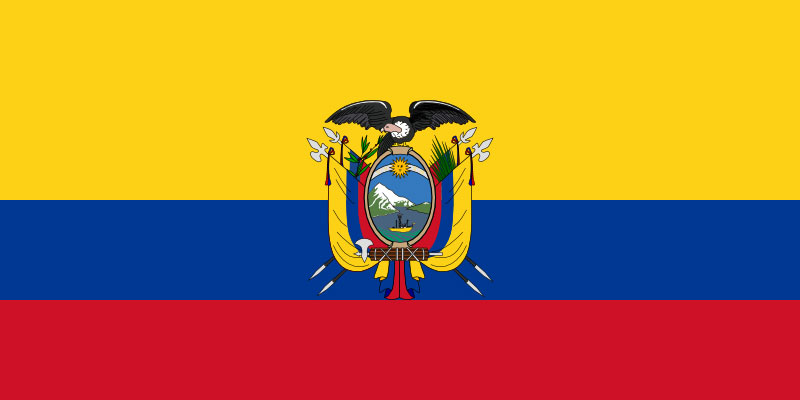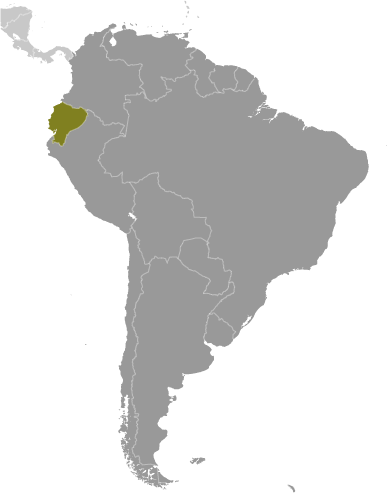HISTORICAL BACKGROUND
Article 81 of the Political Constitution states:
(1)
The state shall guarantee the right, in particular for journalists and social commentators, to obtain access to sources of information; and to seek, receive, examine, and disseminate objective, accurate, pluralistic, and timely information, without prior censorship, on matters of general interest, consistent with community values.
…
Information held in public archives shall not be classified as secret, with the exception of documents requiring such classification for the purposes of national defense or other reasons specified by law.
The Organic Law on Transparency and Access to Public Information (LOTAIP) was adopted on 18 May 2004.
(2) The law gives citizens the right to demand public information in any format from public bodies and organizations that provide state services or are publicly owned. The request must be in writing. Bodies must respond in ten days but that can be extended another five days. There is no obligation to create information, conduct evaluations or analysis, or to produce summaries, statistical information, or indices if the information is widely dispersed.
There are exemptions for personal information, national security, national defence including military plans, intelligence, and other information protected specially by other laws. The regulations note that this includes commercial or financial information including information given in confidence; protected commercial, banking industrial or technical secrets, information related to the administration of justice; information on state decision making; if it would cause harm; and information given to the Tax Administration.
Information can be secret for a maximum of 15 years but the duration can be extended if there is continued justification for it. Information currently held as secret that is over 15 years old should be made public. The National Security Council is responsible for the classification and declassification of national security-related information. Congress can also declassify information in special session. Information cannot be classified following a request.
The Ombudsman (Defensoría del Pueblo) is in charge of monitoring and promoting the law. It can hear complaints or make investigations on its own initiative.
(3)
Complaints about withholdings can be made to a court by individual requestors. The Ombudsman can also take cases to court. The court can order the release of the information. Appeals of court decisions can be made to the Constitutional Court.
Public bodies are required make information about their activities on web sites including their structures and legal basis, internal regulations, goals and objectives, directories of personnel, monthly remunerations, services, contracts including a list of those who have failed to fulfil previous ones, budgets, results of audits, procurements, credits, and travel allowances of officials.
(4) Courts and other bodies are required to publish the full texts of decisions. The Congress is required to publish weekly on its web site all texts of projects of laws. The Electoral Supreme Court is required to publish the amounts received and spent by political campaigns. Political parties are required to publish annual reports on their expenditures.
Public bodies are required to appoint an official to receive and answer requests. Bodies must create registries of documents. They must also make an index of classified information. They are required to adopt programs to improve awareness of the law and citizen participation. University and other educational bodies are also required to include information on the rights in the law in their education programmes.
Public employees who unlawfully withhold, alter or falsify information can be fined one month's salary or be suspended without salary for that period.
The law went into effect in May 2004 but implementation has been slow. Regulations for implementation were released in January 2005.
(5) Public bodies have not appointed officials, nor have they created the lists of classified information. A recent report by the Access Initiative found that "Ignorance exists regarding the Law of Transparency and Access to Public Information throughout all levels of local government (municipalities, provincial councils, etc.). There is also a lack of knowledge within civil society about the Law and the citizen's right to public information".
(6)
The Law of Environmental Management gives a right to obtain information about environmental harms.
(7)
NOTES
Constitución Política de la República de Ecuador de 1998.
http://pdba.georgetown.edu/Constitutions/Ecuador/ecuador98.html
Ley Orgánica de Transparencia y Acceso a la Información Pública. Oficio N° SGA.0000173, a 11 de mayo del 2004.
http://www.aedep.com/paginas/leydere.htm.
Homepage:
http://www.defensordelpueblo.org.ec/
See
http://www.mingobierno.gov.ec/leytransparencia.html
Reglamento a la Ley Orgánica de Transparencia y Acceso a la Información Pública, N. 2471. 12 Enero 2005.
http://www.presidencia.gov.ec/noticias.asp?noid=4169
See
The State of Access to Information, Participation, and Environmental Justice in Ecuador.
Id.





















